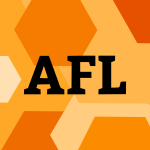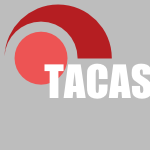41 papers:
 CSCW-2015-Medhi-ThiesFGOC #named #network #social
CSCW-2015-Medhi-ThiesFGOC #named #network #social- KrishiPustak: A Social Networking System for Low-Literate Farmers (IMT, PF, NG, JO, EC), pp. 1670–1681.
 SAT-2015-IvriiRS #incremental #mining #satisfiability
SAT-2015-IvriiRS #incremental #mining #satisfiability- Mining Backbone Literals in Incremental SAT — A New Kind of Incremental Data (AI, VR, OS), pp. 88–103.
 DUXU-ELAS-2014-HungS #case study #design #visual notation
DUXU-ELAS-2014-HungS #case study #design #visual notation- Visual Design in Healthcare for Low-Literate Users — A Case Study of Healthcare Leaflets for New Immigrants in Taiwan (YLH, CS), pp. 44–55.
 SAT-2014-JarvisaloK #bound
SAT-2014-JarvisaloK #bound- Conditional Lower Bounds for Failed Literals and Related Techniques (MJ, JHK), pp. 75–84.
 CHI-2013-CuendetMBC #named #video
CHI-2013-CuendetMBC #named #video- VideoKheti: making video content accessible to low-literate and novice users (SC, IM, KB, EC), pp. 2833–2842.
 CHI-2013-RazaHTPRSR #speech
CHI-2013-RazaHTPRSR #speech- Job opportunities through entertainment: virally spread speech-based services for low-literate users (AAR, FuH, ZT, MP, SR, US, RR), pp. 2803–2812.
 DHM-SET-2013-HungCSC #analysis #case study #comparative #education #effectiveness #women
DHM-SET-2013-HungCSC #analysis #case study #comparative #education #effectiveness #women- A Comparative Analysis of the Educational Effectiveness of Leaflet and Website for Low-Literate Patients — A Case Study of Immigrant Mothers in Taipei (YLH, KRC, CS, TC), pp. 204–213.
 HCI-UC-2013-ModestoFA
HCI-UC-2013-ModestoFA- Search Engine Accessibility for Low-Literate Users (DMM, SBLF, AdSA), pp. 324–331.
 MoDELS-2012-SchulzeCA #approach #modelling #uml
MoDELS-2012-SchulzeCA #approach #modelling #uml- An Approach for Synchronizing UML Models and Narrative Text in Literate Modeling (GS, JCO, JA), pp. 595–608.
 MoDELS-2012-SchulzeCA #approach #modelling #uml
MoDELS-2012-SchulzeCA #approach #modelling #uml- An Approach for Synchronizing UML Models and Narrative Text in Literate Modeling (GS, JCO, JA), pp. 595–608.
 SAT-2012-GelderWL #preprocessor #quantifier
SAT-2012-GelderWL #preprocessor #quantifier- Extended Failed-Literal Preprocessing for Quantified Boolean Formulas (AVG, SBW, FL), pp. 86–99.
 SAT-2012-MatsliahSS #learning
SAT-2012-MatsliahSS #learning- Augmenting Clause Learning with Implied Literals — (Poster Presentation) (AM, AS, HS), pp. 500–501.
 Onward-2011-Singer
Onward-2011-Singer- A literate experimentation manifesto (JS), pp. 91–102.
 SAT-2011-LonsingB #detection
SAT-2011-LonsingB #detection- Failed Literal Detection for QBF (FL, AB), pp. 259–272.
 AFL-J-2008-KlimaP10a
AFL-J-2008-KlimaP10a- Literally Idempotent Languages and their Varieties — Two Letter Case (OK, LP), pp. 761–780.
 ILC-2010-Turner #lisp #named #programming
ILC-2010-Turner #lisp #named #programming- LP/LISP: literate programming for Lisp (RMT), pp. 21–28.
 SAT-2010-BubeckB #quantifier
SAT-2010-BubeckB #quantifier- Rewriting (Dependency-)Quantified 2-CNF with Arbitrary Free Literals into Existential 2-HORN (UB, HKB), pp. 58–70.
 CHI-2009-MedhiGT #comparison #mobile
CHI-2009-MedhiGT #comparison #mobile- A comparison of mobile money-transfer UIs for non-literate and semi-literate users (IM, SNNG, KT), pp. 1741–1750.
 IDGD-2009-MedhiRT
IDGD-2009-MedhiRT- Mobile-Banking Adoption and Usage by Low-Literate, Low-Income Users in the Developing World (IM, AR, KT), pp. 485–494.
 AFL-2008-KlimaP
AFL-2008-KlimaP- Literally idempotent languages and their varieties — two letter case (OK, LP), pp. 220–231.
 LATA-2008-KlimaP #morphism
LATA-2008-KlimaP #morphism- Literal Varieties of Languages Induced by Homomorphisms onto Nilpotent Groups (OK, LP), pp. 299–310.
 HT-2007-WellsTG
HT-2007-WellsTG- Search habits of the computer literate (JW, MT, JG), pp. 37–38.
 HCI-IDU-2007-DhakhwaHGMT #interface #named
HCI-IDU-2007-DhakhwaHGMT #interface #named- Sambad — Computer Interfaces for Non-literates (SD, PAVH, GBG, PM, IT), pp. 721–730.
 AdaEurope-2007-LauLCY #detection #fault #on the
AdaEurope-2007-LauLCY #detection #fault #on the- On Detecting Double Literal Faults in Boolean Expressions (MFL, YL, TYC, YTY), pp. 55–68.
 SIGIR-2004-XuU #analysis #mining #ranking #web
SIGIR-2004-XuU #analysis #mining #ranking #web- A unified model of literal mining and link analysis for ranking web resources (YX, KU), pp. 546–547.
 SAC-2004-AlvezLO #bottom-up
SAC-2004-AlvezLO #bottom-up- Constructive negation by bottom-up computation of literal answers (JÁ, PL, FO), pp. 1468–1475.
 IJCAR-2001-Benedetti #graph
IJCAR-2001-Benedetti #graph- Conditional Pure Literal Graphs (MB), pp. 331–346.
 IJCAR-2001-Szeider
IJCAR-2001-Szeider- NP-Completeness of Refutability by Literal-Once Resolution (SS), pp. 168–181.
 IFM-2000-Bowen #animation #hardware #logic programming #semantics #specification
IFM-2000-Bowen #animation #hardware #logic programming #semantics #specification- Combining Operational Semantics, Logic Programming and Literate Programming in the Specification and Animation of the Verilog Hardware Description Language (JPB), pp. 277–296.
 TACAS-1998-RuysB #experience #modelling #programming #validation
TACAS-1998-RuysB #experience #modelling #programming #validation- Experience with Literate Programming in the Modelling and Validation of Systems (TCR, EB), pp. 393–408.
 UML-1998-ArlowEQ #modelling #uml
UML-1998-ArlowEQ #modelling #uml- Literate Modelling — Capturing Business Knowledge with the UML (JA, WE, JQ), pp. 189–199.
 ICDAR-1997-Bippus #2d #pseudo #recognition
ICDAR-1997-Bippus #2d #pseudo #recognition- 1-Dimensional and Pseudo 2-Dimensional HMMs for the Recognition of German Literal Amounts (RDB), pp. 487–490.
 JICSLP-1996-DeransartPBS #hypermedia #logic programming #source code
JICSLP-1996-DeransartPBS #hypermedia #logic programming #source code- A Hypertext Based Environment to Write Literate Logic Programs (Poster Abstract) (PD, PP, RdSB, JdS), p. 540.
 FME-1994-Weber #development
FME-1994-Weber #development- Literate Mathematical Development of a Revision Management System (MW), pp. 441–460.
 CAiSE-1992-LeonardP #framework #modelling #named
CAiSE-1992-LeonardP #framework #modelling #named- NelleN: A Framework for Literate Data Modelling (ML, IP), pp. 239–256.
 KR-1992-BollingerP #constraints #logic #order
KR-1992-BollingerP #constraints #logic #order- An Order-Sorted Logic with Sort Literals and Disjointness Constraints (TB, UP), pp. 413–424.
 ML-1991-KijsirikulNS #learning #logic programming #performance #source code
ML-1991-KijsirikulNS #learning #logic programming #performance #source code- Efficient Learning of Logic Programs with Non-determinant, Non-discriminating Literals (BK, MN, MS), pp. 417–421.
 ML-1991-Quinlan #induction #logic programming
ML-1991-Quinlan #induction #logic programming- Determinate Literals in Inductive Logic Programming (JRQ), pp. 442–446.
 KR-1989-Cohn #framework #hybrid #on the #reasoning
KR-1989-Cohn #framework #hybrid #on the #reasoning- On the Appearance of Sortal Literals: a Non Substitutional Framework for Hybrid Reasoning (AGC), pp. 55–66.
 OOPSLA-1989-ReenskaugS #programming #smalltalk
OOPSLA-1989-ReenskaugS #programming #smalltalk- An Environment for Literate Smalltalk Programming (TR, ALS), pp. 337–345.
 SLP-1986-WooC86 #backtracking
SLP-1986-WooC86 #backtracking- Selecting the Backtrack Literal in the AND/OR Model (NSW, KMC), pp. 200–210.
 CSCW-2015-Medhi-ThiesFGOC #named #network #social
CSCW-2015-Medhi-ThiesFGOC #named #network #social SAT-2015-IvriiRS #incremental #mining #satisfiability
SAT-2015-IvriiRS #incremental #mining #satisfiability DUXU-ELAS-2014-HungS #case study #design #visual notation
DUXU-ELAS-2014-HungS #case study #design #visual notation SAT-2014-JarvisaloK #bound
SAT-2014-JarvisaloK #bound CHI-2013-CuendetMBC #named #video
CHI-2013-CuendetMBC #named #video CHI-2013-RazaHTPRSR #speech
CHI-2013-RazaHTPRSR #speech DHM-SET-2013-HungCSC #analysis #case study #comparative #education #effectiveness #women
DHM-SET-2013-HungCSC #analysis #case study #comparative #education #effectiveness #women HCI-UC-2013-ModestoFA
HCI-UC-2013-ModestoFA MoDELS-2012-SchulzeCA #approach #modelling #uml
MoDELS-2012-SchulzeCA #approach #modelling #uml MoDELS-2012-SchulzeCA #approach #modelling #uml
MoDELS-2012-SchulzeCA #approach #modelling #uml SAT-2012-GelderWL #preprocessor #quantifier
SAT-2012-GelderWL #preprocessor #quantifier SAT-2012-MatsliahSS #learning
SAT-2012-MatsliahSS #learning Onward-2011-Singer
Onward-2011-Singer SAT-2011-LonsingB #detection
SAT-2011-LonsingB #detection AFL-J-2008-KlimaP10a
AFL-J-2008-KlimaP10a ILC-2010-Turner #lisp #named #programming
ILC-2010-Turner #lisp #named #programming SAT-2010-BubeckB #quantifier
SAT-2010-BubeckB #quantifier CHI-2009-MedhiGT #comparison #mobile
CHI-2009-MedhiGT #comparison #mobile IDGD-2009-MedhiRT
IDGD-2009-MedhiRT AFL-2008-KlimaP
AFL-2008-KlimaP LATA-2008-KlimaP #morphism
LATA-2008-KlimaP #morphism HT-2007-WellsTG
HT-2007-WellsTG HCI-IDU-2007-DhakhwaHGMT #interface #named
HCI-IDU-2007-DhakhwaHGMT #interface #named AdaEurope-2007-LauLCY #detection #fault #on the
AdaEurope-2007-LauLCY #detection #fault #on the SIGIR-2004-XuU #analysis #mining #ranking #web
SIGIR-2004-XuU #analysis #mining #ranking #web SAC-2004-AlvezLO #bottom-up
SAC-2004-AlvezLO #bottom-up IJCAR-2001-Benedetti #graph
IJCAR-2001-Benedetti #graph IJCAR-2001-Szeider
IJCAR-2001-Szeider IFM-2000-Bowen #animation #hardware #logic programming #semantics #specification
IFM-2000-Bowen #animation #hardware #logic programming #semantics #specification TACAS-1998-RuysB #experience #modelling #programming #validation
TACAS-1998-RuysB #experience #modelling #programming #validation UML-1998-ArlowEQ #modelling #uml
UML-1998-ArlowEQ #modelling #uml ICDAR-1997-Bippus #2d #pseudo #recognition
ICDAR-1997-Bippus #2d #pseudo #recognition JICSLP-1996-DeransartPBS #hypermedia #logic programming #source code
JICSLP-1996-DeransartPBS #hypermedia #logic programming #source code FME-1994-Weber #development
FME-1994-Weber #development CAiSE-1992-LeonardP #framework #modelling #named
CAiSE-1992-LeonardP #framework #modelling #named KR-1992-BollingerP #constraints #logic #order
KR-1992-BollingerP #constraints #logic #order ML-1991-KijsirikulNS #learning #logic programming #performance #source code
ML-1991-KijsirikulNS #learning #logic programming #performance #source code ML-1991-Quinlan #induction #logic programming
ML-1991-Quinlan #induction #logic programming KR-1989-Cohn #framework #hybrid #on the #reasoning
KR-1989-Cohn #framework #hybrid #on the #reasoning OOPSLA-1989-ReenskaugS #programming #smalltalk
OOPSLA-1989-ReenskaugS #programming #smalltalk SLP-1986-WooC86 #backtracking
SLP-1986-WooC86 #backtracking









